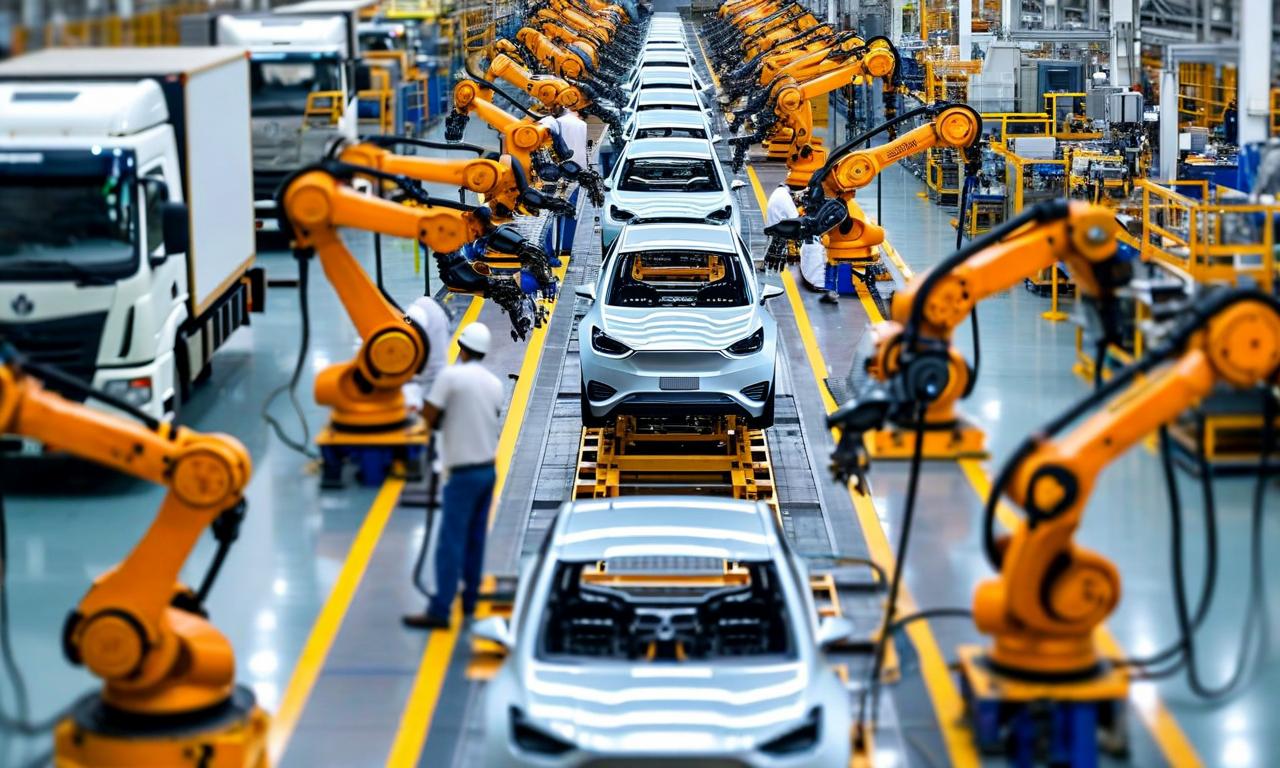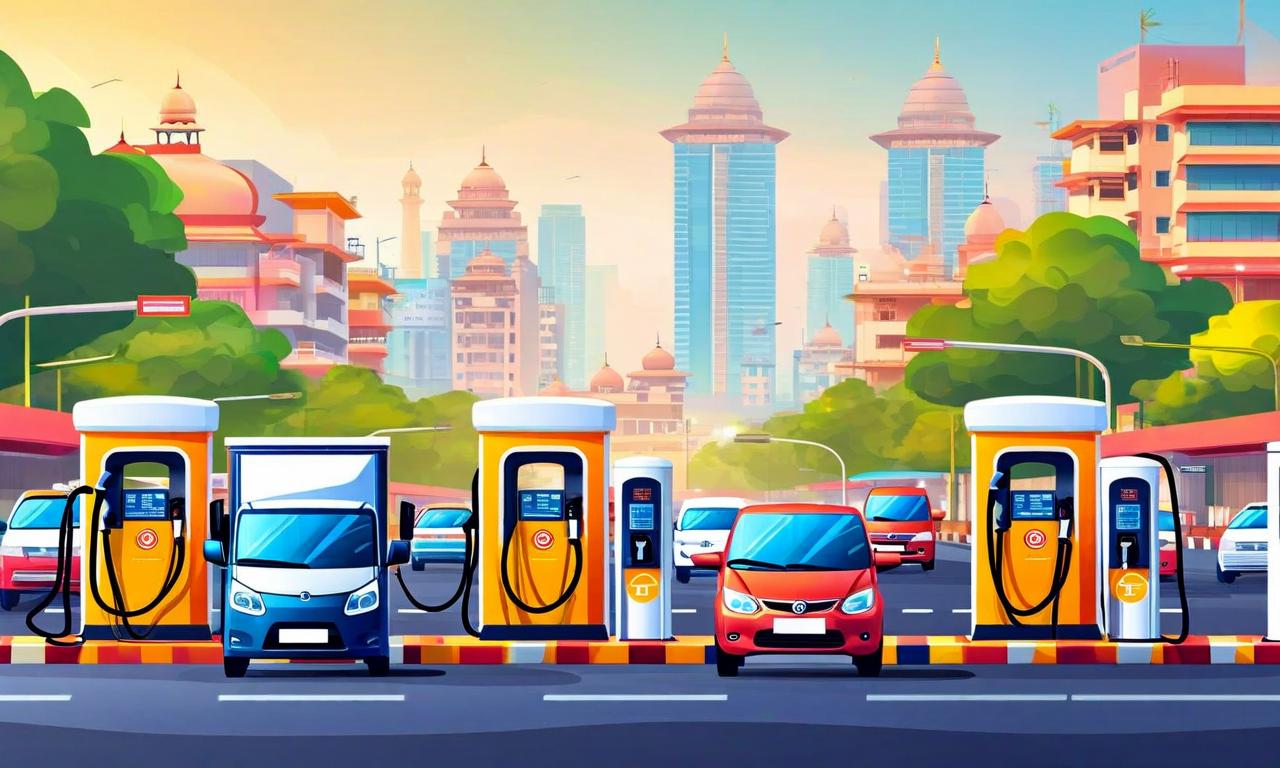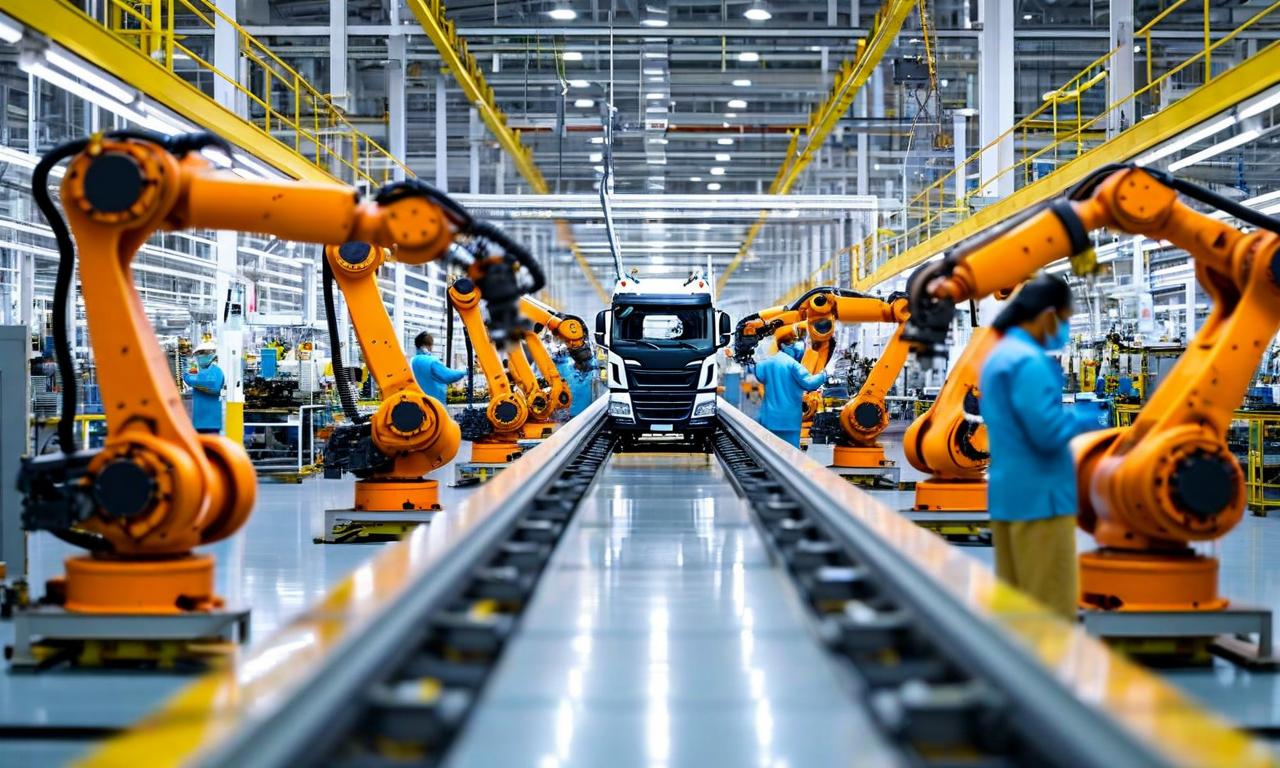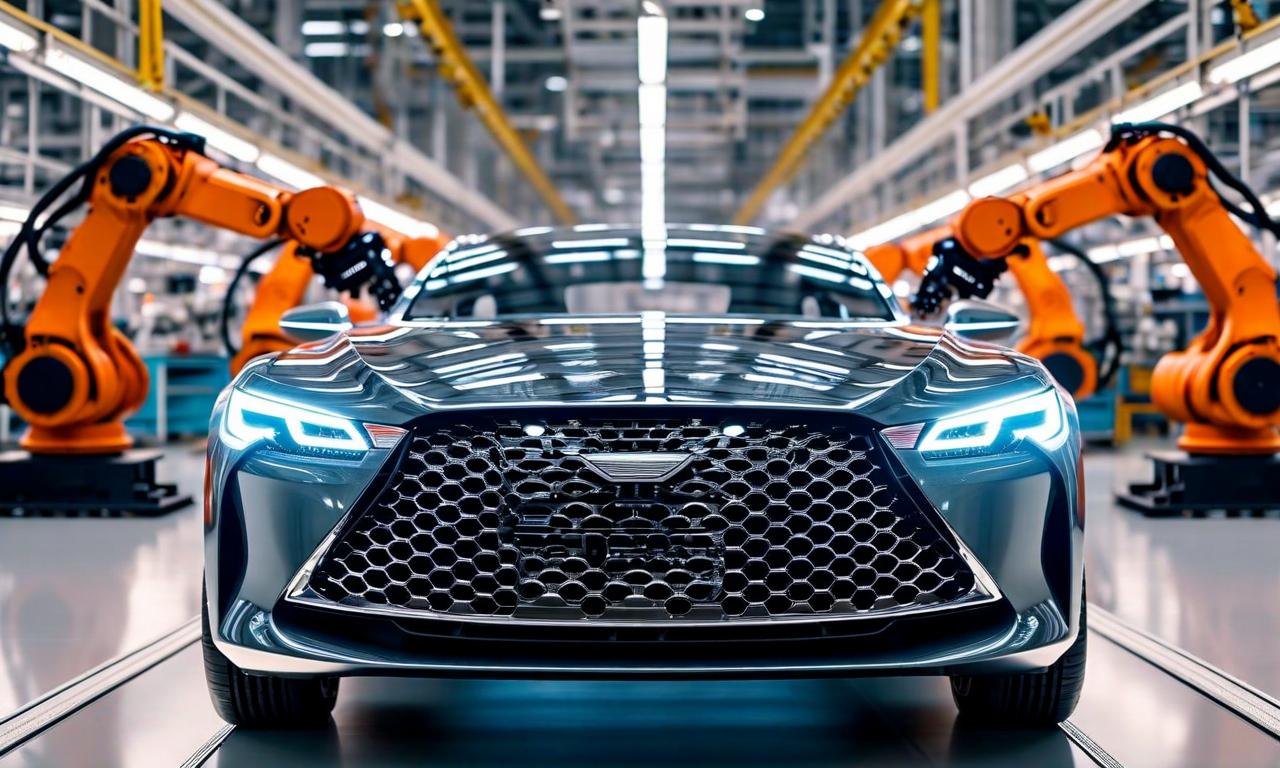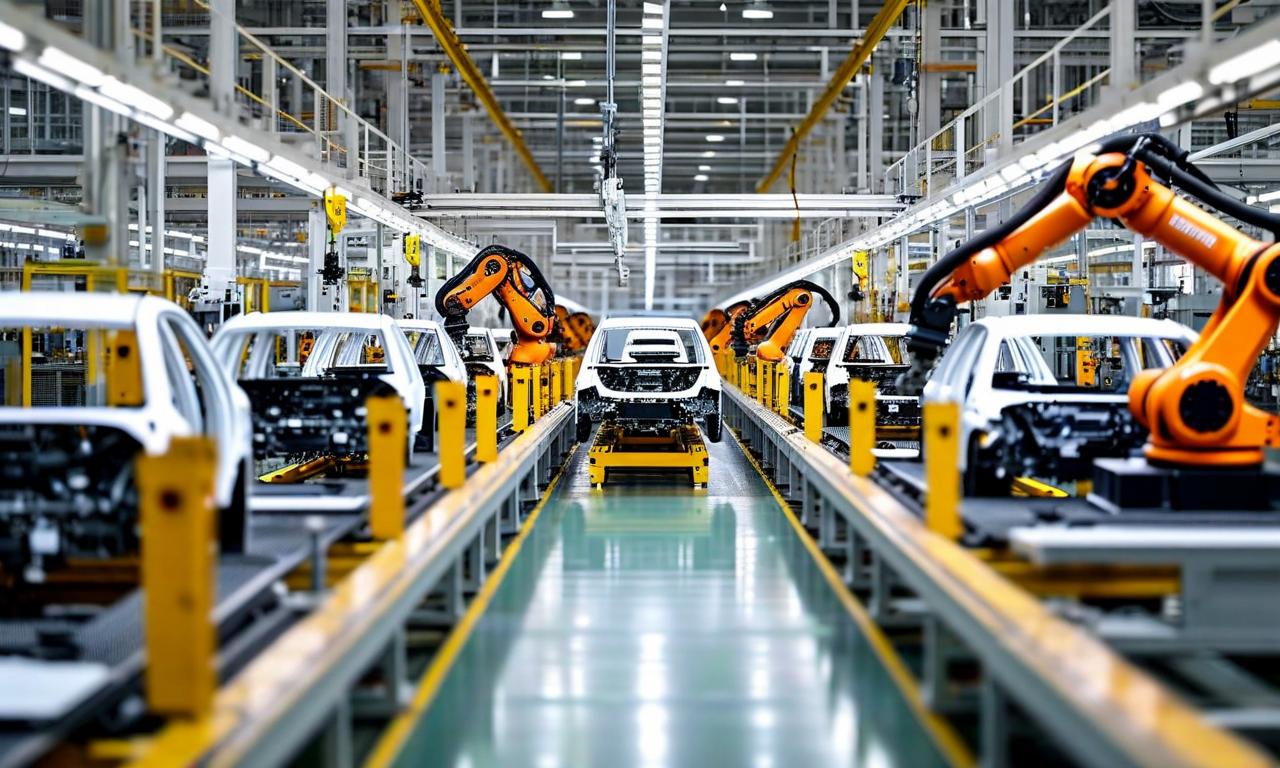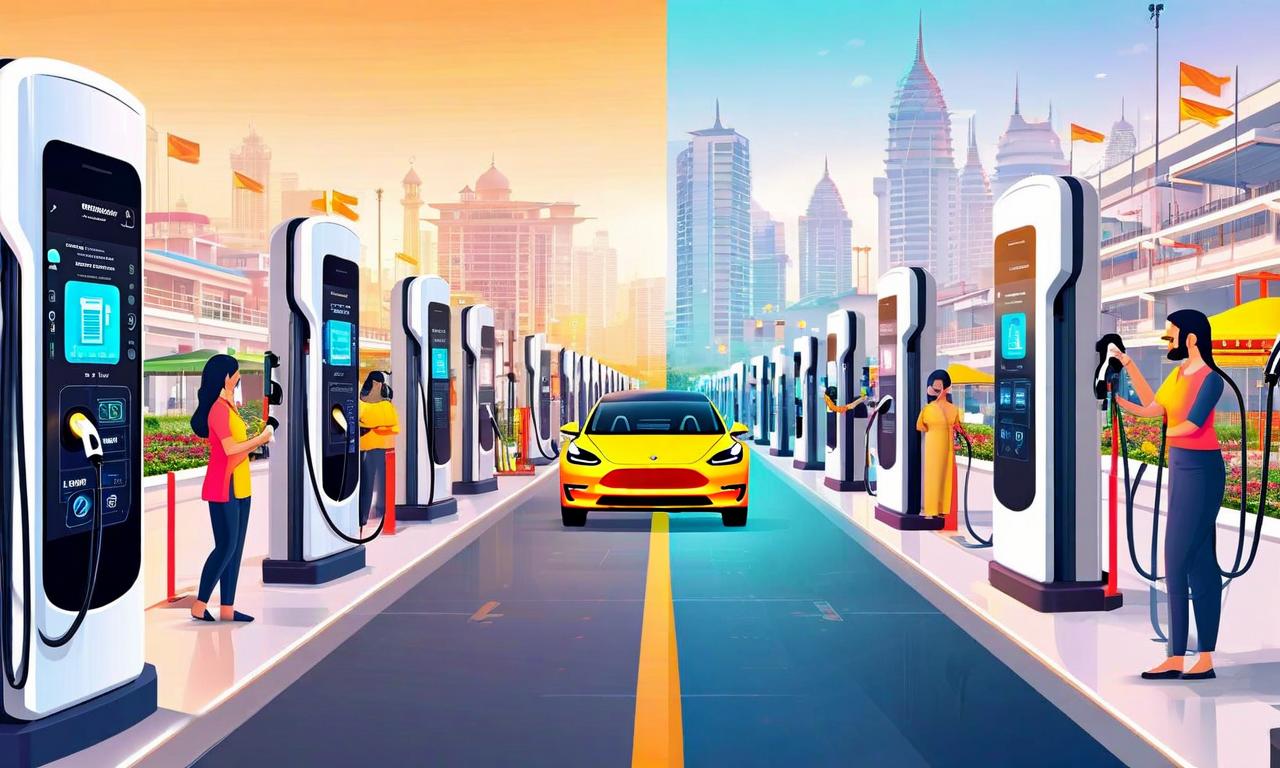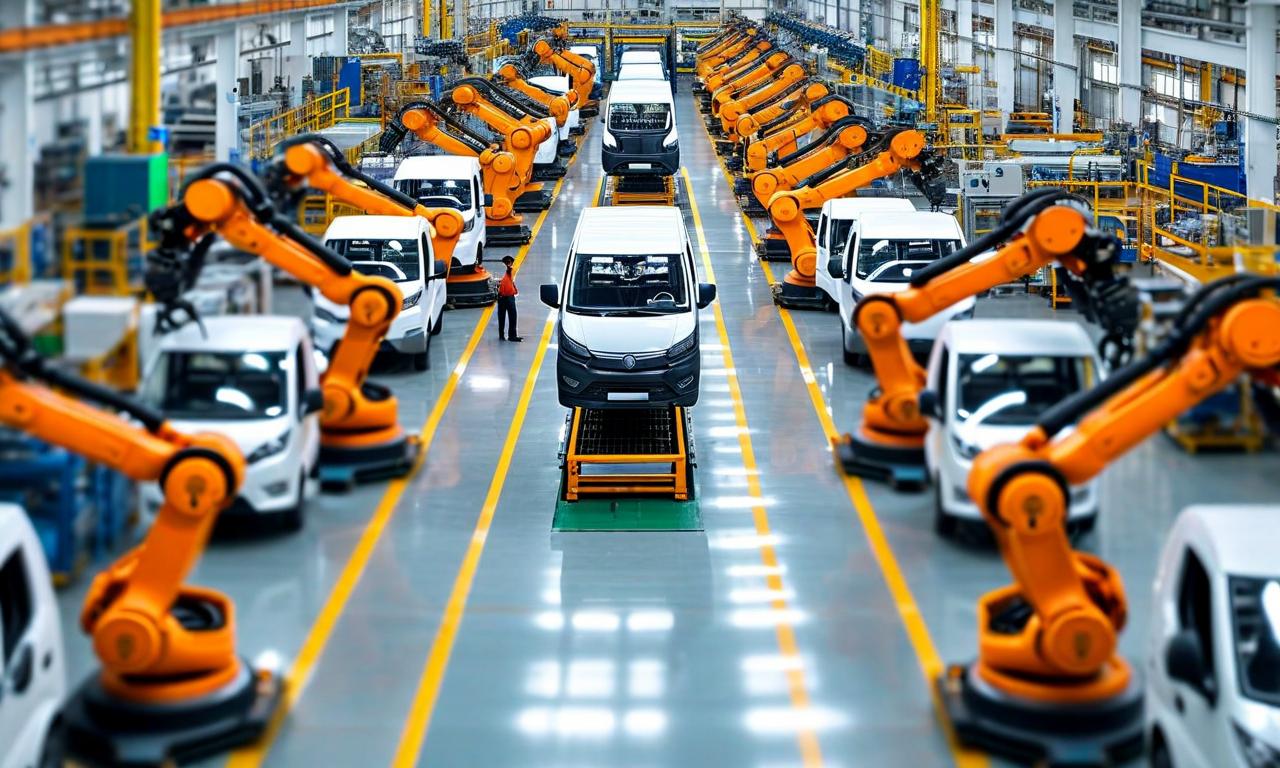Tata Motors Faces Dual Challenges: Potential EV Tax Hike and JLR IT Security Incident
Tata Motors is confronting two significant challenges. An Indian panel has recommended increasing the tax on electric vehicles from 5% to 18% for cars priced between 2-4 million rupees, potentially affecting Tata's EV business. Additionally, Jaguar Land Rover (JLR), a Tata Motors subsidiary, has reported a global IT security incident. The company is working to resolve the issues but has not provided specific details about the nature or extent of the problem.
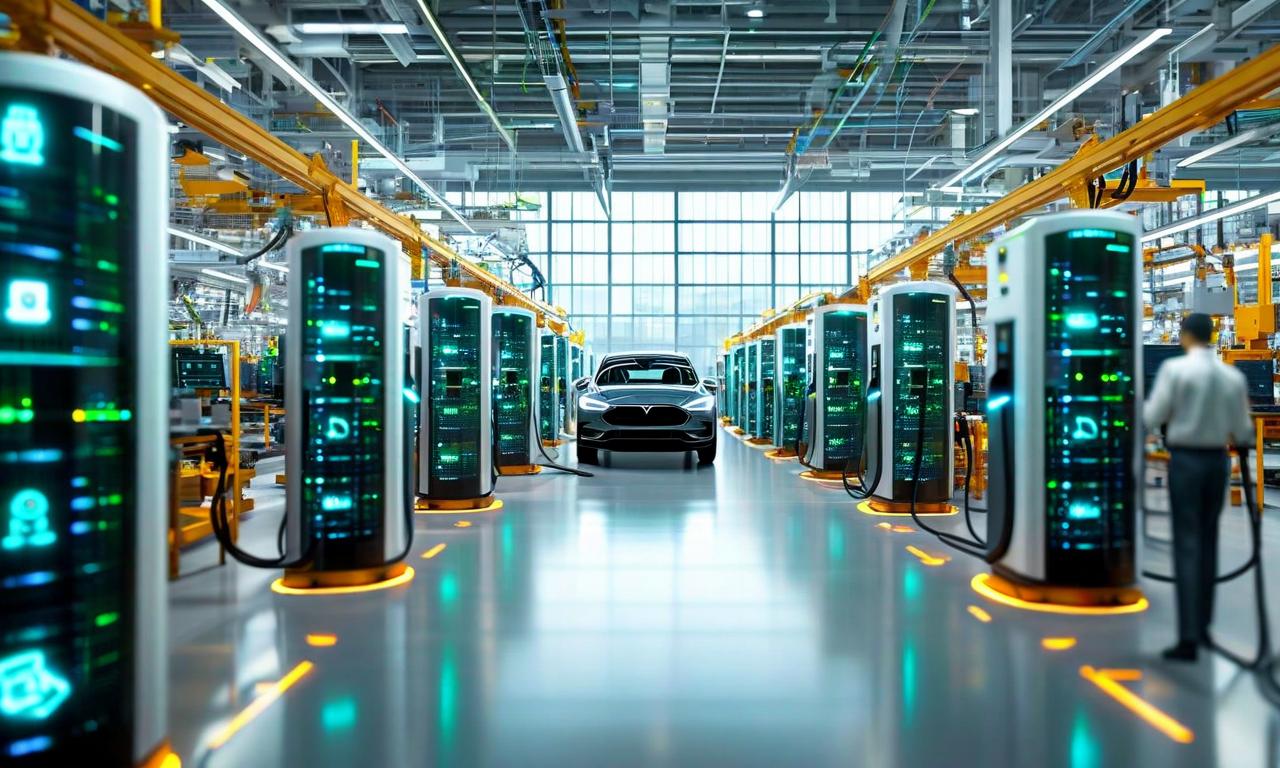
*this image is generated using AI for illustrative purposes only.
Tata Motors , a key player in India's electric vehicle (EV) market, is confronting a pair of significant challenges that could impact its operations and market position.
Proposed EV Tax Increase
An Indian panel has recommended a substantial increase in the tax rate on electric vehicles, potentially affecting Tata Motors' EV business. The proposal suggests raising the tax from the current 5% to 18% for electric cars priced between 2-4 million rupees. This recommendation specifically targets the mid-range EV segment where Tata Motors has a strong presence.
If implemented, this tax hike could significantly impact the pricing strategy and sales of Tata Motors' electric vehicles. The company, which has been at the forefront of India's EV revolution, may need to reassess its pricing and marketing strategies to maintain its competitive edge in this price-sensitive market.
IT Security Incident at Jaguar Land Rover
In a separate development, Tata Motors has disclosed an IT security incident at its material subsidiary, Jaguar Land Rover Automotive Plc (JLR) in the UK. According to a statement released by JLR:
"We are working at pace to resolve global IT issues impacting our business. We will provide an update as appropriate in due course."
The company has not provided specific details about the nature or extent of the IT issues. However, the fact that these are described as "global IT issues" suggests a potentially significant impact on JLR's operations.
Implications for Tata Motors
These dual challenges present Tata Motors with a complex business environment:
- The potential EV tax increase could affect the pricing and demand for its electric vehicles in India, a key growth market for the company.
- The IT security incident at JLR could have operational and reputational implications for both JLR and its parent company, Tata Motors.
As these situations develop, stakeholders will be closely watching how Tata Motors navigates these challenges. The company's response to both the potential tax changes and the IT security incident will be crucial in maintaining its market position and investor confidence.
Tata Motors has stated that it will provide further updates on the JLR IT incident as more information becomes available. Meanwhile, the industry awaits the final decision on the proposed EV tax increase and its potential impact on the burgeoning electric vehicle market in India.
Historical Stock Returns for Tata Motors
| 1 Day | 5 Days | 1 Month | 6 Months | 1 Year | 5 Years |
|---|---|---|---|---|---|
| -5.47% | -1.89% | +6.13% | +42.89% | +42.89% | +42.89% |

